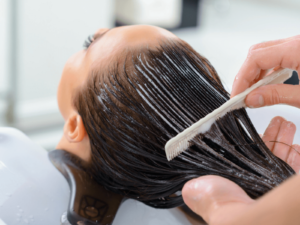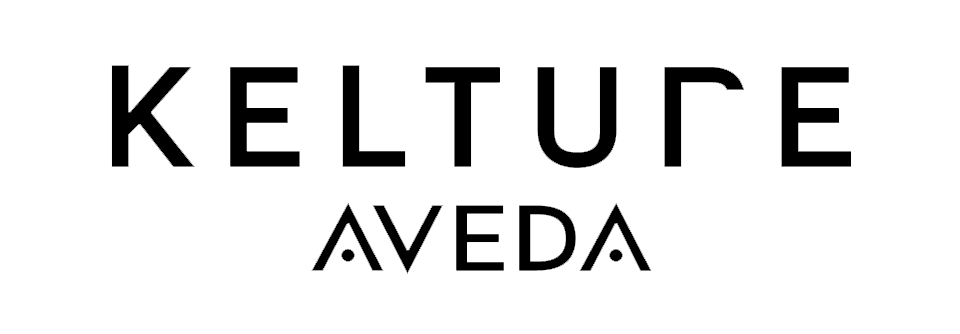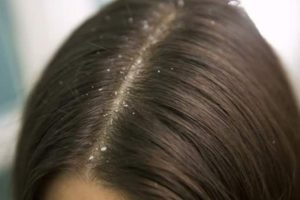Types of dandruff : things to know before buying an anti-dandruff product
Hush yourself and look away from that swanky black shirt or your stunning little black dress as dandruff can get ruthless. The little white flakes can wreak havoc, putting you in an embarrassing situation in a social gathering. And besides depriving you of an exciting wardrobe, dandruff can cause itchy scalp, making it hard for you to manage on a day-to-day basis.
Dandruff is often attributed to poor hygiene and/or improper diet. In most cases it results from the flaking of scalp triggered due to dryness. Dietary nourishment as well as topical moisturisation can help keep the condition at bay. Sometimes, when the scalp’s pH goes out of sync, it attracts a host of skin disorders leading to dandruff.
Some of the most traditional dandruff remedies are also the most effective in curing the woe; however, understanding the condition better and knowing its precise cause is always better to zero down on the effective cure.
Types of dandruff
1) Dry scalp
Dandruff often develops on people who generally have dry skin. This dry skin could be a result of winter months or not shampooing your hair regularly. People with curly hair also suffer from a drier scalp than other hair types. Using sulfate shampoos that create a lot of foam can also cause and aggravate dry skin-related dandruff.
The logic works the same as it does for your skin. When you don’t moisturise it enough, it’ll start getting dry and flaky. This is one of the reasons why some people experience dandruff only in winters when the skin is stripped off all the moisture. Most of us indulge in hot water showers, which worsen the condition. The key is always to include nourishing foods in your diet and use an effective anti-dandruff shampoo. Drink plenty of fluids. A leading Delhi-based dermatologist, Dr. Deepali Bhardwaj, cautions against using hair oil, “Oiling is not always great as it may let the scalp fungus, Malazzesia, feed on it and spread further.
2) Oily scalp
Sebum is the natural oil that is produced by the sebaceous glands to moisturize your hair and skin and prevent it from drying up. It is also meant to keep the signs of aging at bay. However, sometimes your body may start producing excess sebum. This overproduction could be a result of puberty, pregnancy, stress, or irregular shampooing. When the excess sebum mixes with dirt and dead skin cells, it forms dandruff. Symptoms are yellow patches on the scalp, yellowish large dandruff flakes on scalp, itching, greasy hair.
This can be treated in two ways –
(a) finding an efficient cleaning agent to clean your scalp regularly and keep it healthy,
(b) treating abnormal production of sebum/oil.
Oily scalp becomes a feeding ground of a certain fungus called Malassezia. Such a condition facilitates thriving of the fungus thereby aggravating dandruff.
3) Disorders, Diseases and Allergies

Other ailments affect our bodies in numerous ways. Some skin disorders like eczema or psoriasis can trigger dandruff. You can be allergic to a certain drug, chemical or food item which can react in a way to cause your skin (including your scalp) to itch and flake. Seborrheic dermatitis is a form of acute dandruff, which usually occurs at the back of the head and near the neck. It can also spread to the rest of the scalp and is often accompanied by sores, itchiness and red patches.
Once a health care professional has confirmed an individual has dandruff (seborrheic dermatitis), the main treatment includes anti-dandruff shampoos, cleansers, and anti-inflammatory creams and lotions. More importantly, often the most effective dermatologic treatments are combination treatments using several different medicated ingredients used at the same time.
Over-the-counter shampoos and steroid cream medications are the usual treatments. More frequent shampooing and cleansing are the usual treatment but mostly generic. Professional range recommended by Salons can usually help solve the conditions as the hairstylists know what goes better with the hair conditions .
For severe cases not responding to a combination of steroid creams, foams, sprays, or lotions, alternate treatments may be tried. A dermatologist may be very helpful for resistant cases that have not cleared with standard therapy.
Rare severe cases may require short-term treatment with oral steroids such as prednisone. Oral pills are not the mainstay of dandruff treatment and should not be routinely used.
Know what causes dandruff
-
Indulging in a hot water shower strips off natural oils from our hair resulting in itchy scalp that is flaky and dry
-
Use of mild shampoos does not thoroughly clean our scalp thus leading to dandruff.
-
Using Hair styling products like hair gels, waxes, mousses or hairsprays
-
Sharing combs and hair brushes
-
Under-washing or over-washing not only cause dandruff but also is a major cause of hair fall.
-
A yeastlike fungus (malassezia) that feeds on oils on the scalps of most adults
-
Age. Dandruff usually begins in young adulthood and continues through middle age. That doesn’t mean older adults don’t get dandruff. For some people, the problem can be lifelong.
What to know about dandruff products
The most important job of an anti-dandruff shampoo is to wash, thoroughly cleanse and break any product build up in your hair. Hence, it’s important to have a product that lathers well and rinses off well.
There are enough anti-dandruff shampoos available in the market for all hair types. Make sure to choose the right shampoo for your hair type. Anti-dandruff shampoos meant for dry hair will leave your hair moisturized. For oily hair and scalp, the shampoo will strip off the oils from your hair and scalp.
Choose the right active ingredients available in your shampoo such as Ketoconazole, ZPTO etc. that helps fight dandruff. Hence, you need to read the labels carefully to check the ingredients. We have included the list of active ingredients later in this blog to educate you further.
The special formulation of anti-dandruff shampoo is to re-balance the scalp’s pH balance as well as that might be causing dandruff. Like, dry scalp needs moisture so moisturizing agents should be there in the shampoo. Also, an oily scalp that has extra sebum causing dandruff needs lather and cleansing ingredients.
What to ingredients to look for in a dandruff product
Choosing the right anti-dandruff shampoo depends on a variety of factors which should determine your buying decision. It also means looking at each shampoo’s list of ingredients. We’re listing down some active ingredients that ensure to keep dandruff at bay
1. Zinc Pyrithione: This is another anti-fungal, antibacterial and an anti-inflammatory agent that prevents Malassezia fungus to reproduce. It helps reduce yeast production in the scalp. Zinc pyrithione is not as hazardous as selenium sulfide as per the experts. It can help improve overall texture and health of your strands. Moreover, this ingredient takes off all dead cells off the scalp thus allowing hair growth and have the ability to reduce hair fall. If dandruff is causing your hair to fall, we recommend you buy the best shampoo for hair fall to obtain the best results.
2. Selenium Sulphide: This ingredient helps fight fungus. It also suppresses the production of natural oils in the scalp glands. It is a soothing agent. However, it is recommended that you not use products having this ingredient if you have chemically treated your hair.
3. Ketoconazole: It is considered the most effective and powerful anti-fungal ingredient. It reduces the shedding of skin cells and is used in severe cases when other products have proved unsuccessful. It binds to the natural protein of your hair and helps eliminate excess levels of fungus that naturally breed on the scalp. It keeps fighting it long after you have rinsed off the shampoo.
4. Coal Tar: It does not slow down the appearance of dandruff. However, it’s particularly helpful if you have an oily scalp. It is a natural anti-fungal agent but should not be used on treated or colored hair.
5. Salicylic Acid: It acts as a scrubbing agent to exfoliate and thus helps in eliminating flakes. It may cause dryness to the scalp. Hence, it will be better to choose a shampoo which uses salicylic acid in combination with a moisturizing conditioner.
6. Natural ingredients like Apple Cider Vinegar, Apple juice, Essential oils- Jojoba oil, coconut oil, rosemary oil, neem, lemon extracts and more. Most of these ingredients help turn a harsh shampoo into one mild one. Know what mild shampoo means and how it makes your hair healthy and voluminous.
7. Tea Tree Oil: This antiseptic, antibiotic and antifungal ingredient helps in cleansing your scalp.
8. Green Tea extracts: Experts say that green tea has the potential for treating dandruff and psoriasis.
Subscribe To Newsletter.
Get exclusive monthly discounts on our Hair Services and Beauty Products. Join the other 10,000+ subscribers to receive unique deals and promotions!



